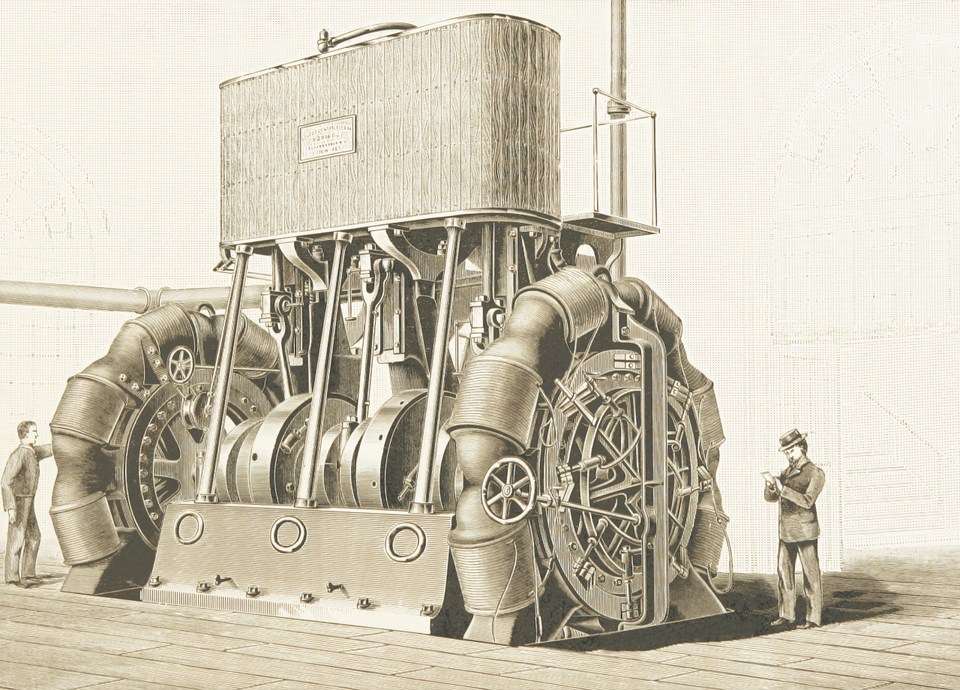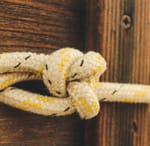Beyond The Machine: Recognizing the System That Shapes Our Reality

What is the origin of this monstrous machine that chews up beauty and spits out money? – Charles Eistenstein, Sacred Economics
There's something wrong with the world, but you already know that.
It's something you’ve felt your whole life, even if you couldn't quite put your finger on it. A sense that the rules we live by don’t make sense. That no matter how hard you try to play the game, the finish line always moves just out of reach.
This feeling lives in the exhaustion that no amount of rest can touch. In the loneliness that lingers even when you’re surrounded by people. In the disquiet that follows every purchase, every paycheck, every moment you spend grinding toward a future that never seems to arrive.
It lives in the wars that never cease. In the streets lined with empty buildings while people sleep in the cold. In the grocery stores overflowing with food while hunger persists.
It lives in the way we are told there is never enough resources, never enough time, never enough safety—so we must compete rather than collaborate, hoard rather than share, turn inward rather than reach out.
It lives in the quiet, persistent sense that this is not how life is meant to be. And yet, we are told to ignore it. To keep our heads down, to work harder, to buy more, to numb ourselves, to be grateful for what we have, to accept this as reality.
And then, when it does become clear that something is broken, we're led to treat symptoms but never the root cause. We're sent chasing solutions that never quite solve, fighting battles that never seem to end, and turning against one another instead of turning toward the truth.
But this is not reality. This is The Machine at work.
Within each of us there is some piece of humanness that knows we are not being served by the machine which orchestrates crisis after crisis and is grinding our futures into dust.
- Audre Lorde
What is The Machine?
The Machine is not just capitalism. It’s not just the government. It’s not just the corporations, the culture, or the algorithm that decides what you see and think. It’s all of it intertwined into a system so vast and self-replicating that it makes itself invisible, a system that does not serve you and was never designed to.
It's the entire apparatus that keeps us obedient to its demands—economic, social, and psychological; a web of exploitation, control, and manufactured scarcity that fuels hierarchy and authoritarianism.
It's a story we're born into that teaches us to equate worth with productivity and wealth as the ultimate proof of virtue. It brainwashes us to believe that what we consume is who we are and that competing is the only way to survive.
It's a real-life Squid Game that keeps us too busy, divided, and exhausted to imagine alternatives. It thrives on obedience, inertia, and the illusion of individual escape, ensuring that even our rebellion feeds it.
And worst of all, it's the voice inside us whispering, "Nothing else is possible."
The Rebellion That Became Another Cage
I spent most of my life rebelling. I saw the cracks in the system early, and even though I couldn't put words to what it was, I refused to play by its rules. I did what so many of us do: I fought back. I quit the job, rejected the expectations, and built something of my own.
I built a life, a business, and even an entire community around that identity. Proudly rejecting the status quo, I was convinced I'd found the way out. I branded myself as the outsider, the rule-breaker, the one who “sees through it all.”
But The Machine is clever and relentless.
It doesn’t just crush rebellion, it finds ways to commodify it– the rise of influencer culture, self-help movements, and even radical entrepreneurship is proof of this.
I wasn’t outside The Machine, I was just feeding it in a new way. I was defining myself in opposition to it, which meant that it still defined me. My hustle of rebellion was still a hustle, and the demand to prove I was not like them kept me wriggling around in its paradigm.
I couldn’t see how easily The Machine repurposes revolutionary humans for its own ends– how the systems we push back on shapeshift and absorb our resistance, then sell it back to us as another lifestyle and marketable identity.
Authenticity becomes a brand, and anti-capitalist aesthetics become $80 organic cotton t-shirts. The desire for sovereignty gets funneled into endless business coaching that just teaches us how to sell more effectively for The Machine.
We’re told we can opt out by building wealth, hacking the system, and becoming self-sufficient.
We're convinced that our personal success is proof of our liberation; that making money from rebellion means we’ve won. That if we just help others do the same, we’re dismantling the system—when in reality, we’re often just rearranging the same pieces.
All of this keeps us playing The Machine’s rigged game.
Real freedom isn’t about carving out a personal exception. It isn’t about being the one who got out, while others remain stuck. That is just another version of the same old lie—the lie that we must fight alone, succeed alone, escape alone.
The Lie of the Self-Made Person
One of The Machine’s greatest tricks is convincing us that success is an individual pursuit. That those who make it to the top do so by sheer force of will, and those who don’t simply lack the right mindset, the right work ethic, the right energy.
But no one is self-made.
Every so-called success story, big or small, is built on invisible labor—on family support, on exploited workers, on resources taken for granted. The "self-made" millionaire had help, whether she admits it to herself or not. The billionaire who claims to have “built everything himself” had an army of unseen people making that illusion possible.
And yet, The Machine holds up these figures as proof that the system works. So if you suffer within it, it's obviously your fault. Poverty is clearly a personal failing, not a structural one. Solidarity is unnecessary because you, too, could be rich one day if you just try hard enough.
But success within The Machine is not freedom, and wealth does not buy liberation. What it buys is insulation– a more comfortable seat in a burning house.
The Co-Opting of “Manifestation” and the Illusion of Escape
Even the language of freedom has been hijacked. Many modern teachings—ideas that once held real wisdom—have been co-opted and repackaged as tools for the optimization of capitalism.
"Manifestation, abundance, high vibrations"... all too often, these are just new ways to blame those who are suffering for their own pain. The teachings say in roundabout ways, "If you were truly in alignment, you’d be rich by now", and "If you’re still struggling, maybe you just haven’t healed enough".
It’s the same Machine, just draped in spiritual, new-age words that masquerade as empowerment and enlightenment. Another way to keep people isolated, striving, and unwilling to look at the deeper truth – that personal success means nothing if it comes at the expense of collective well-being.
Freedom cannot be an individual project. If your path to success requires you to turn away from those being crushed by the system, then it is not freedom at all... it's complicity.
How the Machine Reproduces Itself
The Machine does not persist through brute force alone. It does not need chains when it has ideology. It does not need to police every thought when it has trained us to police ourselves.
It is upheld through belief. Through habit. Through the slow, daily erosion of our capacity to imagine anything beyond its logic.
It begins early. We are taught to measure our value not in our inherent dignity, not in the richness of our relationships, not in our ability to care for and be cared for—but in numbers and grades, in test scores and salaries. In our ability to "add value" in ways that The Machine deems profitable.
We learn that our worth is conditional and transactional. That we must be useful to be deserving. That struggle is a personal failure, not a systemic design.
And so, we internalize its rhythms.
We hustle not because we love to work but because we fear what happens if we stop. We accept exhaustion as normal. We wear our overwork like a badge of honor. We reject our brilliance, our creativity, and our insightfulness because it doesn't fit within the confines of what feeds The Machine.
We approach relationships with the same ruthless efficiency—curating our circles like portfolios, cutting off the "low-value" people, and severing ties with those who might slow us down. We tell ourselves we are setting boundaries, when often we are just replicating The Machine’s cold logic: if they are not useful, they are disposable.
We structure our days for maximum output. Rest feels like negligence. Joy feels unearned. Slowness feels like failure.
Even when we succeed, we cannot enjoy it. Because the goalpost always moves. The Machine does not reward peace—it rewards perpetual hunger.
And when we look around and see the vast inequity, the senseless suffering, the deep loneliness—The Machine whispers that this is the natural order of things. That we cannot help because this is just the way the world works. That the best thing we can do is keep our heads down and get our own.
But the world does not work this way; The Machine does. And it works only because we continue to believe in it.
What Exists Outside the Machine?
This is the question that terrifies it most.
It's also the question that triggers its fight for existence– which it does through exploiting our fears, fueled by the lie of its inevitability. For so long, we’ve been told that this is the only way, that anything else is unrealistic, impossible, a fairy tale. When this lie goes uninterrogated and lives on within us, we become footsoldiers for The Machine.
But the Machine is not reality; it's a construct. And constructs can be dismantled.
The only way out is to see it, name it, and dismantle it together.
When we stop believing in its logic, its artificial constraints dissolve. What emerges is a more fundamental relationship with life:
Freedom not defined by purchasing power but by genuine autonomy and interdependence.
Wealth measured not in accumulation but in reciprocity and meaningful exchange.
Power recognized not as dominance over others but as the capacity to nurture and transform.
We don’t need a map to some perfect future, we need to start with what we know:
That human beings are not meant to struggle alone. That no one should have to earn the right to rest, to eat, to exist. That the answer to suffering is not personal success but collective action. That wealth hoarded is life stolen. That we are more than cogs in someone else’s profit engine.
The Machine tells us to dream of escape, to imagine that if we just work hard enough, smart enough, and efficiently enough, we can carve out a private paradise within its walls.
But real liberation isn’t about finding a way to win inside a broken system– it’s about refusing to play the game at all.
That being said, we don’t need to be purists to reject The Machine.
That’s another trap it sets—convincing us that if we can’t exit completely, we shouldn’t try at all. That if we still need to earn money, pay rent, or engage with the system in any way, our resistance is meaningless. But that’s just another lie to keep us compliant.
We are still here. We still have to eat, to live, to care for ourselves and each other. And so, the work is not about severing ourselves overnight—it’s about a renewing commitment to seeing The Machine for what it is, disentangling ourselves thread by thread, and taking small, intentional steps toward something better.
Every refusal, every act of mutual aid, every shift away from extraction toward care—it all matters. Dismantling is not a single act but a practice. A daily, conscious effort to build relationships not dictated by profit, to value time not defined by productivity, to measure success not by what we have but by what we share.
We don’t need to be perfect. We just need to begin.
Invest in Revolutionary Thinking
What if we stopped merely critiquing broken systems and started building their replacements? This work is dedicated to unearthing the roots of our current crises and seeding alternatives that honor dignity and freedom.
Your subscription isn't about accessing exclusive content—it's about sustaining independent voices in a time when they're needed most.





Comments ()